Programme Committee 2022-2024
Chaired by Liset Menendez de la Prida (ES), the Programme Committee will independently prepare and supervise the FENS Forum’s scientific programme and select the plenary and special lecturers, symposia and technical workshops.
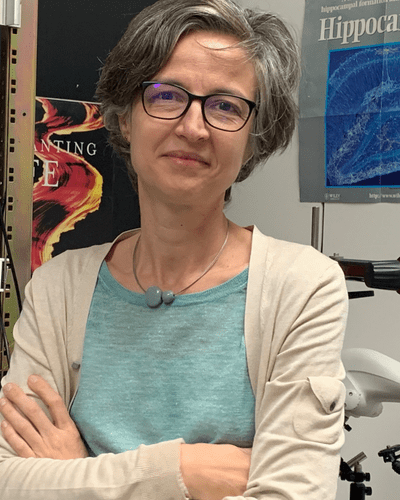
Liset Menendez de la Prida
Programme Committee Chair, SpainLiset M de la Prida graduated in Physics in 1994 and received her PhD from the Institute of Neuroscience in Alicante in 1998. After postdoctoral training with Richard Miles in Paris she became Lab
Director at the Instituto Cajal in 2008. She was honoured as the Best Graduate Student and awarded the PhD Extraordinary Prize, and has earned prestigious fellowships and grants from EMBO, HFSP and the European Commission under different framework programs. The main goal of her lab is to understand the function of hippocampal and para-hippocampal circuits. She is a leading international expert in the study of the basic mechanisms of physiological ripples and epileptic fast ripples, with strong visibility as developer of novel groundbreaking electrophysiological tools. Dr. de la Prida serves as an Editor for specialised journals including Journal of Neuroscience Methods and eNeuro, and has commissioning duties in the American Epilepsy Society (Task Force Working Groups) and the Spanish Society of Neuroscience.
Liset Menendez de la Prida
Programme Committee Chair, Spain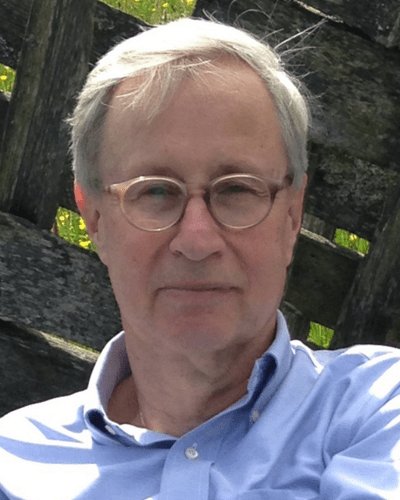
Sigismund Huck
Host Society Committee Chair, AustriaDr Sigismund Huck studied medicine at the University of Vienna, became Assistant Professor and temporary head of the Department of Neuropharmacology, and was instrumental in the foundation of the Center for Brain research. Dr Huck was visiting Research Assistant Professor at the Department of Pharmacology, NYU Medical Center, visiting research fellow at the Department of Neurophysiology, MPI for Psychiatry Munich Martinsried, and visiting Associate Professor at the Center for Neurobiology & Behavior, CPS Columbia University, New York. He is currently a retired Associate Professor at the Center for Brain Research, Medical University Vienna.
Dr Huck was co-founder and two times President of the Austrian Neuroscience Association. After the foundation of FENS in 1998, he became the first Chair of the FENS Schools Committee. He initiated the joint FENS-IBRO School in Sulejow, Poland, (organised by Leszek Kaczmarek) to become Chair of PENS, the joint FENS-IBRO Program for European Neuroscience Schools (see Aguayo et al., 2005). Dr Huck was FENS Secretary-General from 2012-2014. His current research interests are the properties and function of nicotinic ACh receptors.
Sigismund Huck
Host Society Committee Chair, Austria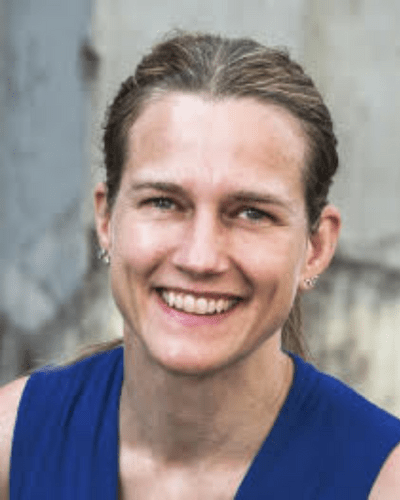
Anna Falk
Programme Committee member, SwedenProfessor Anna Falk is a molecular biologist with a master’s degree from Umeå University, Sweden and a PhD from Karolinska Institutet in neural stem cells and adult neurogenesis. After her PhD, she went to the University of Cambridge (UK) for a postdoc on human iPSC and neural differentiation. In 2012, Prof. Falk started her research group at Karolinska Institutet and founded the iPS core facility. In 2021, she was recruited for a Professorship at Lund University to build up a group with two major lines of research: the use of reprogramming and iPSCs to create cellular models in 2D and 3D of the human brain to study neural development in healthy control, CRISPR edited and patients’ iPSCs, and the development of novel cell therapies for the brain and spinal cord using iPSC derived cellular products.
Anna Falk
Programme Committee member, Sweden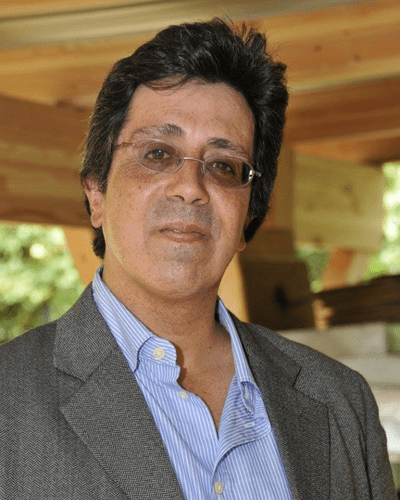
Martin Giurfa
Programme Committee member, FranceMartin Giurfa is a French-Argentinean Exceptional-Class Professor of neurosciences at the University Paul Sabatier of Toulouse, France. He obtained a PhD in neurosciences from the University of Buenos Aires (AR) in 1990. After spending 11 years in Berlin, Germany, he became an associate professor at the Free University of Berlin. In 2021, Dr Giurfa moved to Toulouse, France, where he became a full professor of neurosciences and founded the Research Center on Animal Cognition, a research institute of the CNRS (French Research Council). He directed the institute from its creation until 2017.
He is currently a senior member of the Institut Universitaire de France (French Professorial Academy of Sciences) and a member of the German Academy of Sciences and the Royal Belgian Academy of Sciences. He has received the CNRS Silver Medal and several international awards for his research.
Dr Giurfa’s research focuses on perceptual phenomena, learning and memory in insects (mainly honey bees), from behaviour to molecules. He has brought a cognitive dimension to studies on honey bee learning and memory as his work revealed bees under a new light, given their remarkable cognitive faculties. He holds an ERC Advanced Grant for his work on the neural basis of insect cognition.
Martin Giurfa
Programme Committee member, France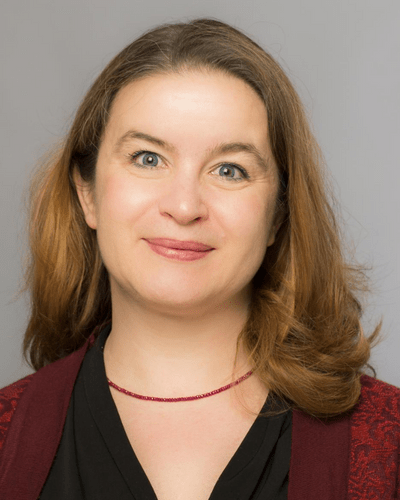
Ileana Hanganu-Opatz
Programme Committee member, GermanyProf. Dr Ileana Hanganu-Opatz received a diploma in Biology and Biochemistry from the University of Bucharest, Romania (1994-1998). In 2002, she completed her PhD on the developmental mechanisms of cortical wiring at the University of Düsseldorf, Germany. Currently, Prof. Dr Hanganu-Opatz is the Director of the Institute of Developmental Neurophysiology at the University Medical Center Hamburg-Eppendorf, Germany. Her research, supported by the German Research Foundation and ERC, aims to elucidate how neuronal activity controls brain development and later behavioural performance in health and psychiatric disorders. Prof. Dr Hanganu-Opatz has has been involved with FENS in multiple functions, as a member of the FENS Committee of Higher Education and Training Committee (CHET) (2016-2020), as a member of the FENS-Kavli Network of Excellence (FKNE) since 2015 and as a symposia speaker and chair at the FENS Forum 2016, 2018, and 2022.
Ileana Hanganu-Opatz
Programme Committee member, Germany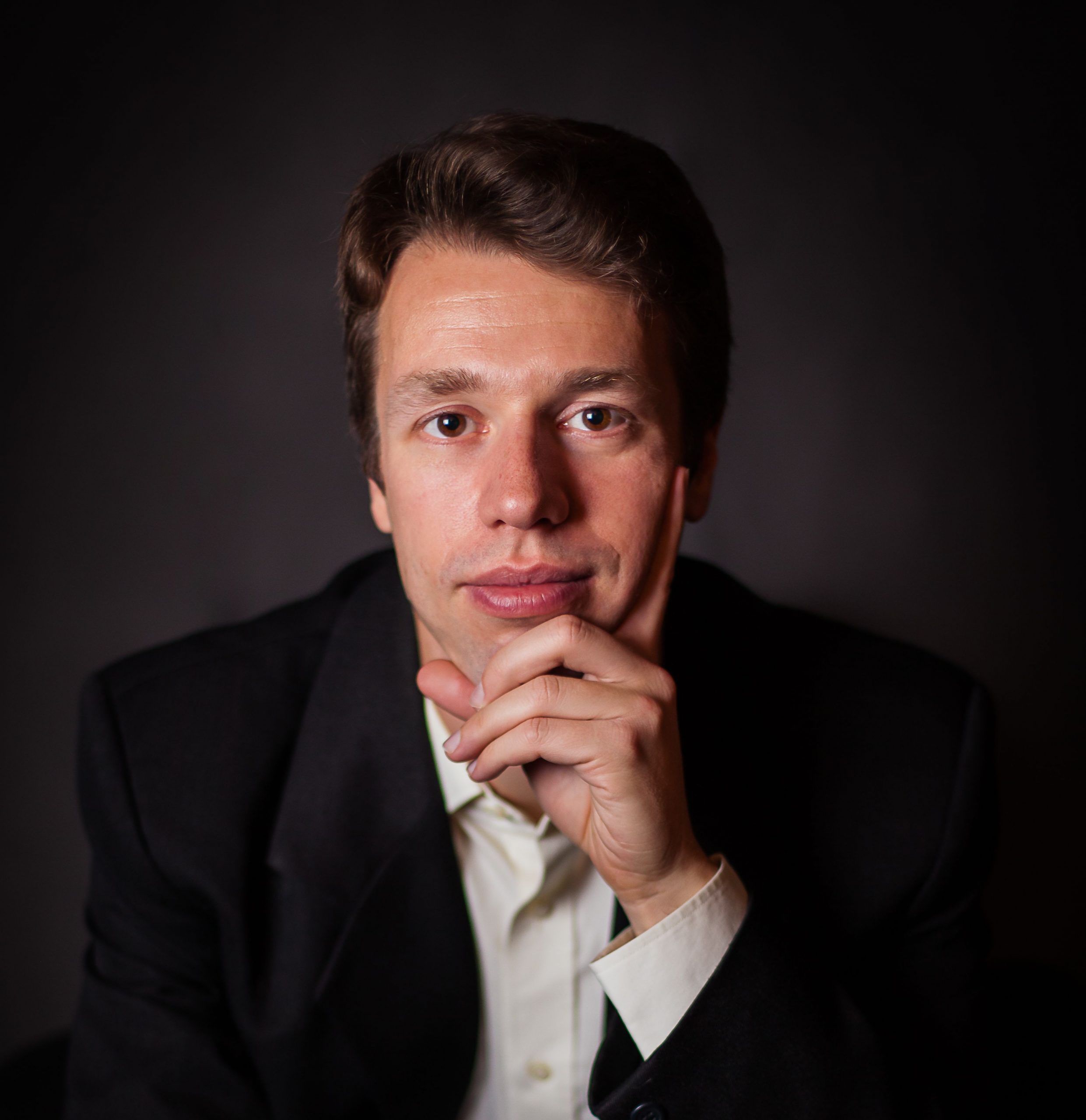
Balázs Hangya
Programme Committee member, HungaryBalázs Hangya is the head of the Lendület Laboratory of Systems Neuroscience in the Institute of Experimental Medicine, Budapest, Hungary. He was trained as a medical doctor at Semmelweis University, Budapest, Hungary and received his MD degree in 2006. In parallel he was also trained as a mathematician and received a master’s degree in Probability Theory and Statistics from Eotvos Lorand University, Budapest, Hungary, in 2007. He joined the laboratory of Tamas Freund at the Institute of Experimental Medicine, Budapest, where he worked on the neural mechanisms of hippocampal and neocortical oscillations. He received his PhD in Neuroscience in 2010 from the Janos Szentagothai Doctoral School of Semmelweis University. After his PhD, Hangya spent four and a half years in the United States as a postdoctoral researcher, first as a Swartz Fellow and then as a Marie Curie Fellow. He joined the Kepecs lab at Cold Spring Harbor Laboratory, where he studied the role of the basal forebrain cholinergic system in attention and learning. The Lendület Award from the Hungarian Academy of Sciences allowed him to return to his home country and start his independent lab at the Institute of Experimental Medicine, Budapest, in 2015. His lab is interested in the neuromodulatory control of cognitive functions, including learning and decision-making.
Balázs Hangya
Programme Committee member, Hungary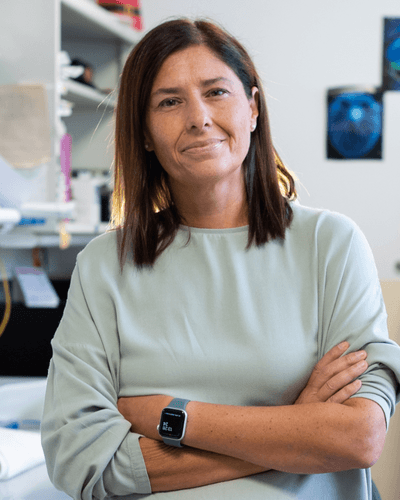
Eloisa Herrera
Programme Committee member, SpainProfessor Eloisa Herrera is a Full Professor at the Spanish National Research Council (CSIC) and Principal Investigator at the Neurosciences Institute in Alicante (IN), Spain. Her research group focuses on the molecular mechanisms controlling the formation of neural circuits. Her PhD work focused on Cancer and Aging. Prof. Herrera has contributed to this field with relevant publications as a first author, including PNAS 1998 and EMBO J 1999a, 1999b, 2000. She also worked on Developmental Neurosciences at Columbia University (US) in the group of Prof. Carol Mason. In 2004, she returned to Spain to establish her group.
Since then, Herrera’s group has published original articles in some of the most emblematic journals and has collaborated with many national and international teams. She was awarded with the “Special Mention” for the best doctoral thesis from the Universidad Autónoma de Madrid (Spain), the Career Development Award from the Human Frontier Science Program (HFSP), the Alberto Sols Prize for the best scientific work 2014 (Spain) and an ERC-Consolidator Grant. Prof. Herrera was the Associated Coordinator of the National Agency of Science (AEI) (Neurosciences) from 2015 to 2018 and has been a member of several committees and evaluation panels for different national and international agencies. Her group counts with uninterrupted funding from the AEI since 2004 and other national and international agencies. She has been invited as a speaker to more than 60 national and international scientific meetings and international universities. She was a member of the PhD programme committee at the IN (2006-12) and co-director of a “Cajal Advanced Neuroscience Training Programme” in Bordeaux (France) in 2018. She is a faculty member of the F1000, director of the Imaging Facility at the IN since 2013 and coordinator of the scientific programme at the Neuroscience Institute since 2020.
Prof. Herrera is organising the Axon2023-Circuits Development and Regeneration meeting in Alicante and is a part of the local programme committee for the next meeting of the International Brain Research Organization (IBRO), taking place in Granada, Spain. She is part of the Editorial Board of Scientific Reports and Molecular Brain journals and usually reviews articles for many top journals.
Eloisa Herrera
Programme Committee member, Spain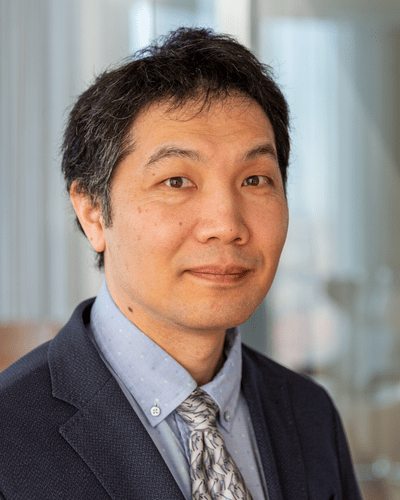
Hajime Hirase
Programme Committee member, DenmarkHajime Hirase obtained a PhD in neuroscience from University College London in 1997. He has done postdoctoral training in Prof. Buzsáki’s (Rutgers University) and Prof. Yuste’s (Columbia University) laboratories, where he was engaged in multichannel electrophysiological recording and two-photon microscopy. He became a principal investigator at RIKEN BSI/CBS (Japan, 2004–2018) and conducted research addressing in vivo neuron-astrocyte interactions. He moved to the University of Copenhagen, where he is a professor at the Center for Translational (Denmark, 2019–present). His main research theme is the astrocytic contribution to synaptic plasticity and neuronal circuit functions in the living rodent brain. His recent findings include the enhancement of brain plasticity by astrocytic G protein-coupled receptor activation.
Hajime Hirase
Programme Committee member, Denmark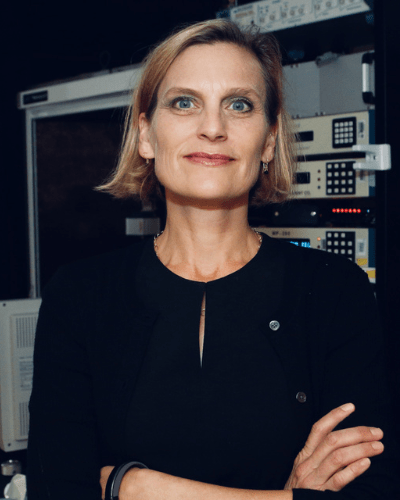
Ellen Lumpkin
Programme Committee member, USAEllen A. Lumpkin is Professor of Cell & Developmental Biology and Physiology, and Investigator in the Helen Wills Neuroscience Institute at the University of California, Berkeley. She is also past chair of SfN’s Program Committee and Director of UC Berkeley’s Inclusive Faculty Mentorship Program. Lumpkin’s group studies genes, cells and neural signals that trigger the sense of touch in mammals. Dr. Lumpkin performed PhD training in neuroscience at UT Southwestern Medical Center and The Rockefeller University. She completed postdoctoral training in physiology & biophysics at the University of Washington, and then started her own lab as an early independence Sandler Fellow at University of California, San Francisco.
Ellen Lumpkin
Programme Committee member, USA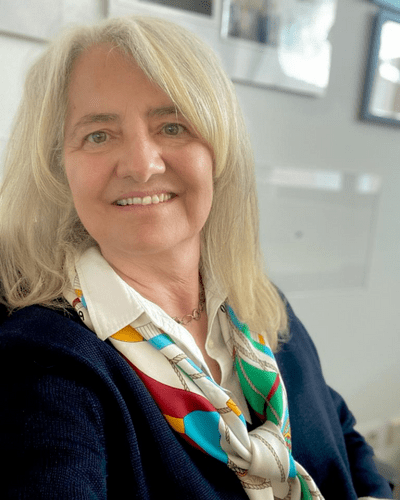
Michela Matteoli
Programme Committee member, ItalyMichela Matteoli is a Full Professor of Pharmacology, Humanitas University; Director of the CNR Institute of Neuroscience; Head of Pharmacology and Brain Pathology lab and Coordinator of the Neuro Center at Humanitas Clinical and Research Hospital, Rozzano, Milano.
Dr Matteoli obtained her PhD from the University of Pisa (IT) and was an EMBO postdoctoral fellow at the Yale School of Medicine and Visiting Scientist at the University of Virginia School of Medicine, US.
She is a member of the European Molecular Biology Organization (EMBO) and the Academia Europaea. She is on the International Scientific Advisory Boards of the Institute of Neuroscience and Psychiatry of the Paris-Descartes University, the Center for Integrative Research in Biology, Collège de France, Paris (FR) and the Umberto Veronesi Foundation. She is a member of international evaluating panels, including the Armenise Harvard-Italy Foundation, the LS5 ERC Advanced grants and SNSF starting grants.
She has been awarded with several international grants, including the ERC Advanced Grant in 2022. She was conferred with the Mid Career Mentoring Award by the journal Nature (2013), the Athena Award for scientific merits (2015), the Feltrinelli Award for Physiology, Biochemistry and Pharmacology (2019), the Marcello Sgarlata Prize (2022). In 2022, she was elected member of the Academia dei Lincei, one of the oldest and most prestigious European scientific institutions. Michela Matteoli’s research focuses on the synapse and how the immune system affects its formation and function. She has published about 170 papers. Her H-index is 62 (Scopus).
Michela Matteoli
Programme Committee member, Italy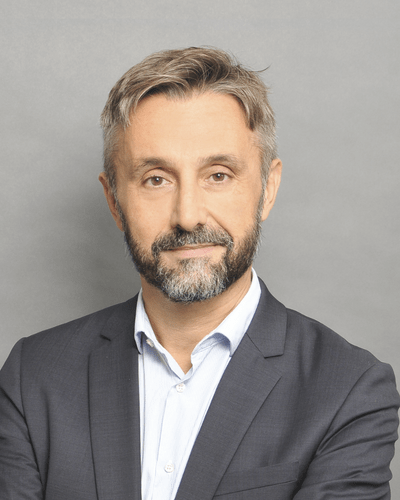
Jean Christophe Poncer
Programme Committee member, FranceJean Christophe Poncer is the Director of Research at Inserm and a Deputy Director of the IFM in Paris, where he leads a group focused on the pathophysiological mechanisms underlying drug-resistant epilepsies, with a particular interest in neuronal chloride transporters. His work combines advanced molecular approaches with functional exploration of cortical synapses and circuits using cellular and rodent models, as well as postoperative human brain tissue in vitro. Jean Christophe is also co-director of the C-BRAINS network for neuroscience and cognitive science in the Ile-de-France region.
Jean Christophe Poncer
Programme Committee member, France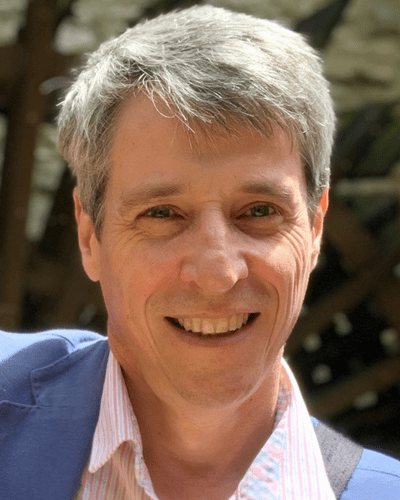
Vincent Prévot
Programme Committee member, FranceVincent Prévot is currently a Senior Research Director at the Inserm (France) and heads the laboratory of “Development and Plasticity of the Neuroendocrine Brain” at the Lille Neuroscience & Cognition research centre in France since 2007. Following his PhD under Jean-Claude Beauvillain, he undertook postdoctoral work at the Oregon National Primate Research Center/Oregon Health & Science University, USA in the laboratory of Sergio R. Ojeda. He then returned to France to take up a tenured Researcher position at the Inserm in 2002 and established an independent research group in Lille, France.
His current research focuses on Systems Neuroscience and Neuroendocrinology, in particular the brain circuits that control reproduction and metabolism and the neural pathways through which they respond to peripheral information.
He has served on Inserm’s scientific commissions and the Executive Committees of several learned societies and currently holds the position of President of the International Neuroendocrinology Federation (INF), and of the Belgium FNRS Neuroscience commission (SVS-3) as well as Past-Treasurer of the Federation of European Neuroscience Societies (FENS).
Vincent Prévot
Programme Committee member, France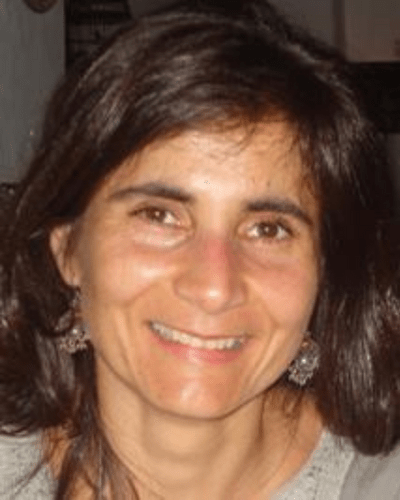
Ana Cristina Rego
Programme Committee member, PortugalAna Cristina Rego is an Associate Professor at the Faculty of Medicine, University of Coimbra, Portugal, and a Principal Investigator at the Center for Neuroscience and Cell Biology (CNC-UC). Rego’s research is focused on understanding neuropathological mechanisms in the early stages of neurodegenerative diseases. She has identified mitochondrial and redox modifications linked to the activation of glutamatergic postsynapses and transcriptional deregulation in Alzheimer’s and Huntington’s diseases. Apart from investigating neuronal mechanisms involving mitochondrial deregulation, her research is also focused on the analysis of targeted neuroprotective strategies.
Ana Cristina Rego is the Vice-President of the Portuguese Brain Council and the President of the Portuguese Society for Neuroscience (SPN).
Ana Cristina Rego
Programme Committee member, Portugal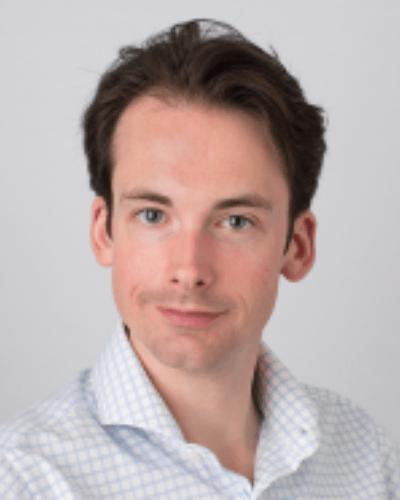
Tomás Ryan
Programme Committe member, IrelandTomás Ryan is Associate Professor in the School of Biochemistry and Immunology at Trinity College Dublin and Principal Investigator at the Trinity College Institute of Neuroscience. The Ryan Lab investigates the fundamental neurobiology of engram cell ensembles in learning and memory. Tomás originally graduated from Trinity College Dublin in Ireland 2005 with a BA in genetics.
He completed his PhD in molecular neuroscience under the supervision of Seth Grant at the University of Cambridge and the Wellcome Trust Sanger Institute in the UK in 2010. His thesis work was supported by a Wellcome Trust PhD Fellowship. Following a year as Junior Research Fellow at Wolfson College, University of Cambridge, he relocated to the USA to work as a Postdoctoral Researcher in the group of Susumu Tonegawa (Nobel Laureate, 1987) at Massachusetts Institute of Technology (MIT). At MIT, he was centrally involved in the development of novel genetic methods that allow for the labelling and manipulation of specific memory engrams in the rodent brain.
He returned to Europe in 2017, to start his independent research group at Trinity College Dublin. His research has been supported by the European Research Council (ERC), Science Foundation Ireland (SFI), the Irish Research Council (IRC), the Jacobs Foundation, the Brain & Behavior Research Foundation, the Lister Institute of Preventive Medicine, and the Canadian Institute for Advanced Research (CIFAR). Tomás is a past-Chair of the FENS-Kavli Network of Excellence (2019 – 2021).
Tomás Ryan
Programme Committe member, Ireland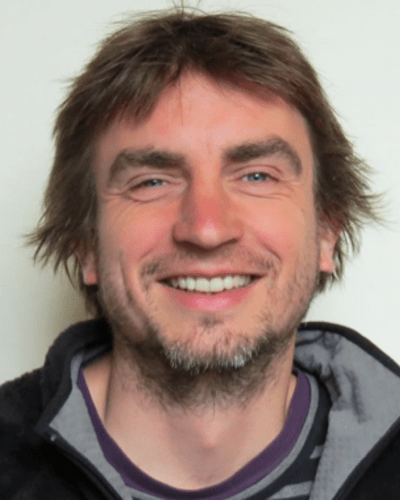
Christopher Summerfield
Programme Committee member, UKChristopher Summerfield trained at UCL, Columbia University and the École normale supérieure, and has been a faculty member at the University of Oxford since 2008. His work is concerned with understanding how humans learn and make decisions. His group studies learning in adults using computer-based tasks and is interested in how humans acquire new concepts or patterns in data and how they use this information to make decisions in novel settings. A major theme in his work is the simulation of learning processes using computational models, including deep neural networks, that are tasked with similar challenges and the study of human brain activity during learning and decision-making using noninvasive methods such as fMRI and EEG.
Christopher Summerfield
Programme Committee member, UK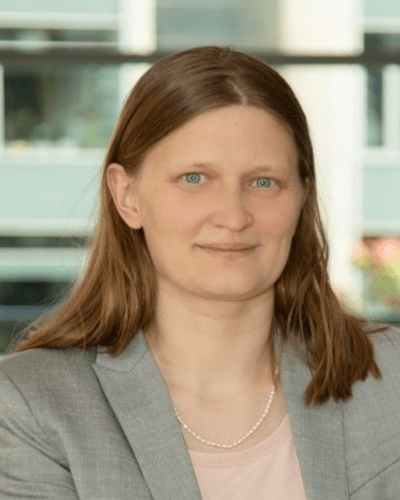
Tatjana Tchumatchenko
Programme Committee member, GermanyTatjana Tchumatchenko is a computational neuroscientist and professor at the Institute for physiological chemistry, University of Mainz Medical Center, and group leader at the Institute of Experimental Epileptology and Cognition Research, University of Bonn Medical Center. Prof. Tchumatchenko’s group models address the molecular, synaptic, and neuronal mechanisms underlying neuronal circuit computation. How are neural circuit computations controlled by synaptic dynamics? How does activity relate to functional output, and what changes at the level of activity and synaptic dynamics when tasks shift? These are some of the questions Prof. Tchumatchenko aims to address with her research.
Tatjana Tchumatchenko
Programme Committee member, Germany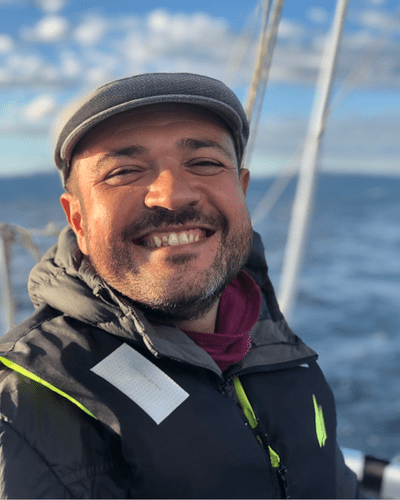
Emre Yaksi
Programme Committee member, Norway - TurkeyThroughout his career, Dr Emre Yaksi developed and used optical, electrophysiological and genetic tools for studying neural computation in small genetically tractable animals, namely fruitflies and zebrafish. The unique combination of these novel technologies enables neuroscientists to design innovative experiments to study neural circuits, which were unthinkable only a few years ago. Together with his team, Dr Yaksi investigates how sensory information is represented in the brain and how it interacts with the internal states of the brain associated with adaptive behaviours.
Dr Emre Yaksi received his B.Sc. (2001) in Molecular Biology at Middle East Technical University, Ankara-Turkey. He obtained his PhD (2007) at Max Planck Institute for Medical Research, Heidelberg-Germany. He worked as a post-doctoral fellow (2007-2010) at Harvard Medical School, Boston-USA. He was an assistant professor (2010-2015) at Neuroelectronics Flanders at Catholic University of Leuven, Belgium. Since 2015, Dr Yaksi has been a professor at the Kavli Institute for Systems Neuroscience at the Norwegian University of Science and Technology, Trondheim, Norway. Since 2022, Dr Yaksi has been an adjunct professor at Koç University Hospital, Istanbul, Turkey.
Emre Yaksi
Programme Committee member, Norway - TurkeyHost Society Committee for FENS 2024 - Austrian Neuroscience Association and the Hungarian Neuroscience Society
The Austrian Neuroscience Association (ANA) and the Hungarian Neuroscience Society (MITT) are delighted that the Federation of European Neuroscience Societies (FENS) is coming to Vienna, Austria for the FENS Forum 2024.
The Host Society Committee (HSC) is responsible for delivering a number of activities at FENS 2024, including social events, public engagement, outreach, and opportunities for early career researchers such as the Early Career Investigator Training Programme.
We look forward to welcoming you in Vienna and hope you enjoy the events we have organised for FENS 2024!

Sigismund Huck
HSC Chair (ANA)Dr Sigismund Huck studied medicine at the University of Vienna, became Assistant Professor and temporary head of the Department of Neuropharmacology, and was instrumental in the foundation of the Center for Brain research. Dr Huck was visiting Research Assistant Professor at the Department of Pharmacology, NYU Medical Center, visiting research fellow at the Department of Neurophysiology, MPI for Psychiatry Munich Martinsried, and visiting Associate Professor at the Center for Neurobiology & Behavior, CPS Columbia University, New York. He is currently a retired Associate Professor at the Center for Brain Research, Medical University Vienna.
Dr Huck was co-founder and two times President of the Austrian Neuroscience Association. After the foundation of FENS in 1998, he became the first Chair of the FENS Schools Committee. He initiated the joint FENS-IBRO School in Sulejow, Poland, (organised by Leszek Kaczmarek) to become Chair of PENS, the joint FENS-IBRO Program for European Neuroscience Schools (see Aguayo et al., 2005). Dr Huck was FENS Secretary-General from 2012-2014. His current research interests are the properties and function of nicotinic ACh receptors.
Sigismund Huck
HSC Chair (ANA)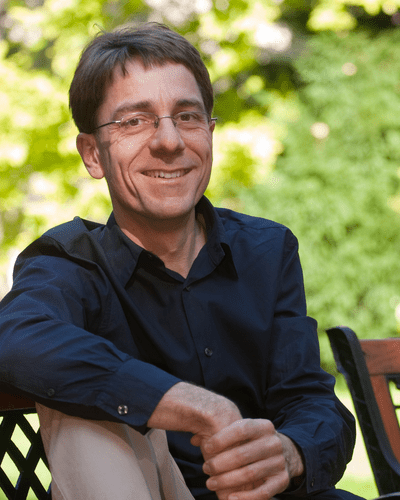
László Acsády
HSC co-chair (MITT)Dr László Acsády is a system neuroscientist interested in the structure and function of the thalamus. His laboratory has been established in 2003 with a special focus on understanding the roles of non-sensory thalamus. Dr Acsády’s group uses advanced morphological and physiological methods to decipher the role of region-specific thalamic communication in governing thalamocortical activity and behaviour.
László Acsády
HSC co-chair (MITT)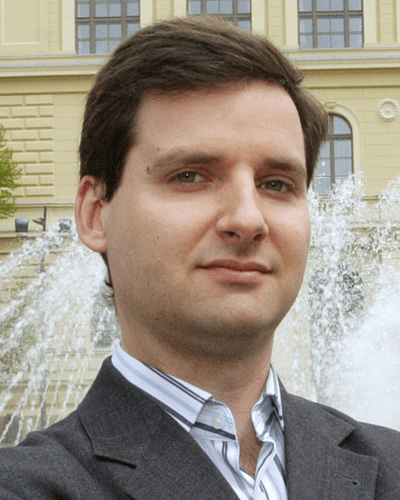
Antal Berényi
HSC memberDr Antal Berényi is a Hungarian systems neuroscientist with expertise in electrophysiology and electrical engineering, dedicated to clinical translational research. His main research goals are (1) to characterize the network level disturbances in neuropsychiatric disorders and epilepsy, and (2) to develop device-based therapies to interfere with these abnormal patterns.
Dr Berényi is also an entrepreneur, leading a MedTech start-up developing an implantable neurostimulation device based on the ISP technology to automatically detect seizures and terminate them at their onset. The efficacy of the technology has been demonstrated in a firstin-human proof of concept study.
Antal Berényi
HSC member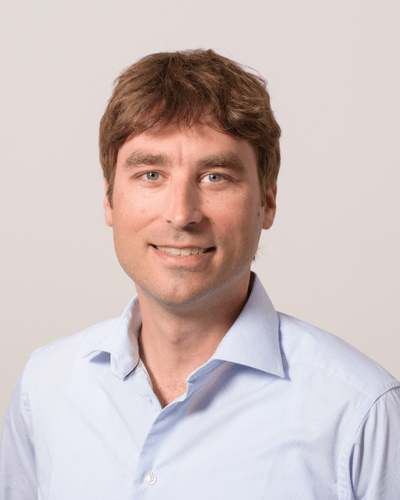
Johann Danzl
HSC memberProfessor Johann Danzl heads an interdisciplinary group at the Institute of Science and Technology Austria, working at the intersection of neuroscience, physics, and data analysis. His research is focused on developing and applying new technologies to decode the spatial and molecular organisation of brain from the tissue to the nanometer scale of synaptic transmission.
Johann Danzl
HSC member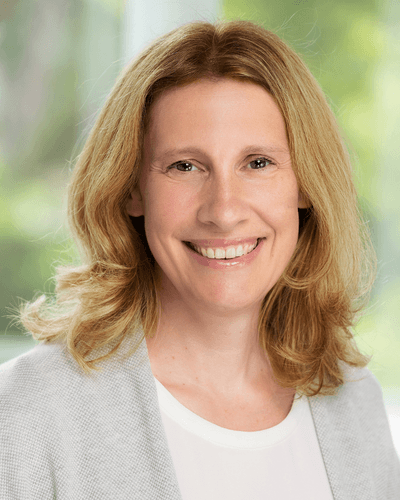
Romana Höftberger
HSC memberRomana Höftberger is Professor of Neuropathology at the Medical University of Vienna (MUV). Her research focuses on the neuropathological characterisation of antibody-mediated encephalitis and demyelinating diseases. Since January 2020 she is head of the Division of Neuropathology and Neurochemistry at the Department of Neurology, MUV.
Romana Höftberger
HSC member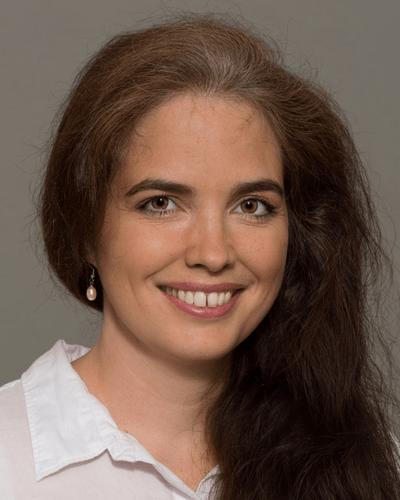
Enikő Kubinyi
HSC memberEniko Kubinyi is a biologist who studies pet dogs' behaviour and cognition together with their genetic and neuroscientific background. She is the principal investigator of the Senior Family Dog Project and the Canine Brain and Tissue Bank, a fellow of the Young Academy of Europe and a founding member of the Hungarian Young Academy.
Enikő Kubinyi
HSC member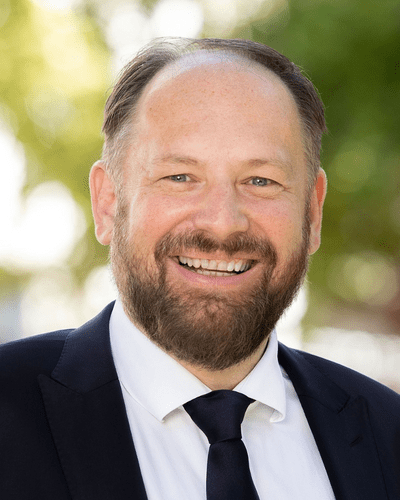
Rupert Lanzenberger
HSC memberRupert Lanzenberger, MD PD, is full professor in clinical neurosciences and leads the Neuroimaging Labs at the MUV. His research is focused on translational, molecular and multimodal neuroimaging, including functional PET, fMRI, PET/MR, and the assessment of neurobiological markers for psychiatric disorders. He has been awarded numerous
prizes and has published 290 papers (h-index 61).
Rupert Lanzenberger
HSC member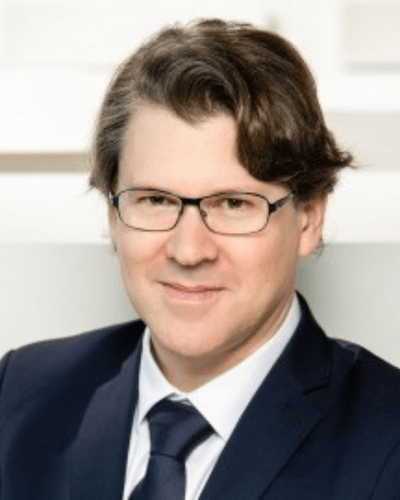
Gerald Obermair
HSC memberGerald Obermair studied Zoology and Neuroscience at the University of Salzburg, Austria, and at Bowling Green State University, Ohio, USA. His PhD thesis was conducted at the University of Innsbruck in collaboration with the University of Salzburg. Prof. Dr Obermair was an Associate Professor at the Medical University Innsbruck between 2013 and 2022, and since 2019 he is the head of the Div. Physiology at the Karl Landsteiner (KL) University in Krems (Austria). Dr Obermair’s research focuses on cellular and molecular neuroscience and ion channels. He is also an organiser of the European Calcium Channel Conference and PhD program coordinator at the KL.
Gerald Obermair
HSC member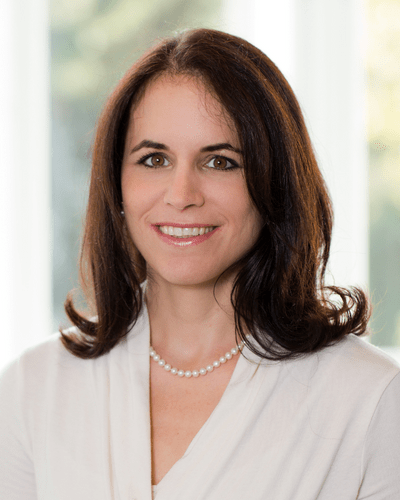
Daniela Pollak
HSC memberDaniela D. Pollak is Professor for Behavioural Biology at the Medical University of Vienna. She conducted her postdoctoral training with Prof. Eric Kandel at Columbia University, USA. Currently, she is leading a research group investigating the neural underpinnings of emotions and behaviour with specific interest in the role of the early life environment in psychiatric disorders.
Daniela Pollak
HSC member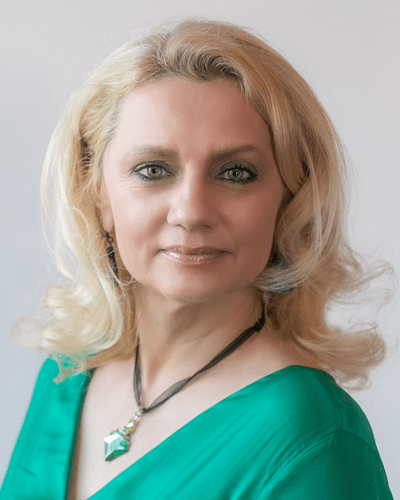
Dóra Reglődi
HSC memberDr Dora Reglodi’s research focuses on neuroendocrinology and general cytoprotection, mainly dealing with a neuropeptide, PACAP. She is full professor, chair of the Anatomy Department. She was President of the Hungarian Neuroscience Society between 2016-2018 and was Chair of the Organisation Committee for the FENS Regional Meeting in 2017. She served as secretary-general of FENS between 2020-2022.
Dóra Reglődi
HSC member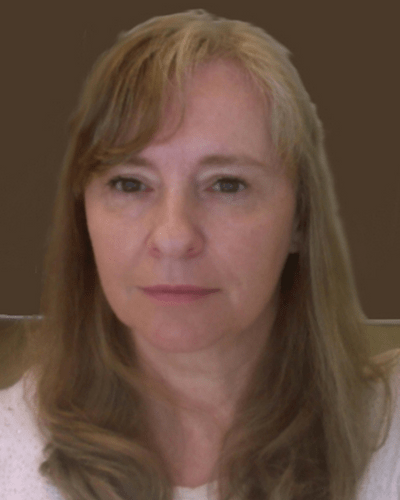
Isabella Sarto-Jackson
HSC memberI.S.-J. is executive manager of the Konrad Lorenz Institute for Evolution and Cognition Research and president of the Austrian Neuroscience Association (ANA). She is editor of Biological Theory and lecturer at University of Vienna, Webster University Vienna, and Comenius University, Bratislava. Her research lies at the interface of neuroscience, evolutionary biology, cognitive science, and social work.
Isabella Sarto-Jackson
HSC member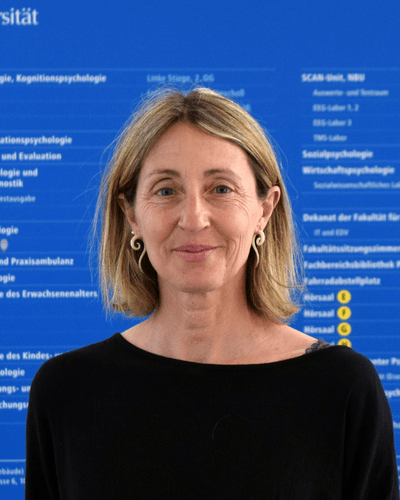
Giorgia Silani
HSC memberGiorgia Silani is Associate Professor and Head of the Clinical and Social Neuroscience Unit at the Faculty of Psychology, University of Vienna. Her research aims to understand the neural, chemical and cognitive basis of social cognition and behaviour, with a focus on neurodivergent populations (e.g. autism).
Giorgia Silani
HSC member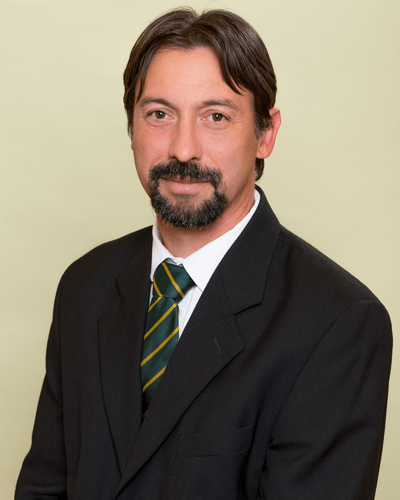
Péter Szűcs
HSC memberDr Peter Szűcs graduated as an MD in 1998, and received a PhD from Neurobiology in 2003. He was a researcher at the Institute of Molecular and Cellular Biology (IBMC, Portugal) from 2007 to 2013 in the ``Ciencia 2007`` programme.
Dr Szűcs is currently an Associate Professor, the Head of Department and the Scientific Coordinator of the NeurotechEU alliance at the University of Debrecen, Hungary. His main research interest is the role of local projection neuron axon collaterals in the spinal dorsal horn.
Péter Szűcs
HSC member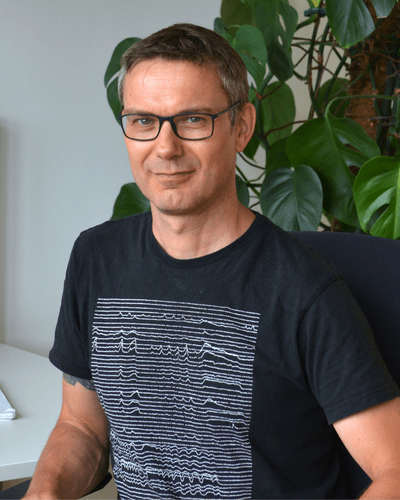
Manuel Zimmer
HSC memberProfessor at the University of Vienna, Manuel Zimmer leads a team studying neuronal network dynamics underlying sensation and behaviour in the worm C. elegans and the fish Danionella cerebrum. Using single cell resolution whole brain imaging, his team discovered that brain states and action sequences are orchestrated across time-scales via brain wide neuronal population dynamics.
Manuel Zimmer
HSC memberStudent Host Society Committee (SHSC) for FENS Forum 2024
The Austrian Neuroscience Association (ANA) and the Hungarian Neuroscience Society (MITT) are delighted that the Federation of European Neuroscience Societies (FENS) is coming to Vienna, Austria for the FENS Forum 2024.
The Student Host Society Committee (SHSC) is the core of early career neuroscientists representing ANA (host society) at the FENS Forum 2024. They will help organise events and initiatives and will support other early career researchers prior to and during the FENS Forum 2024.
We look forward to welcoming you in Vienna and hope you enjoy the events we have organised for FENS 2024!

Marta Solano
SHSC Chair (ANA)Marta Solano is a PhD student part of the lab of Prof. Univ. Mag. Dr. Thomas Klausberger at the Department of Cognitive Neurobiology (Center for Brain Research), at the Medical University of Vienna, Austria.
Marta Solano
SHSC Chair (ANA)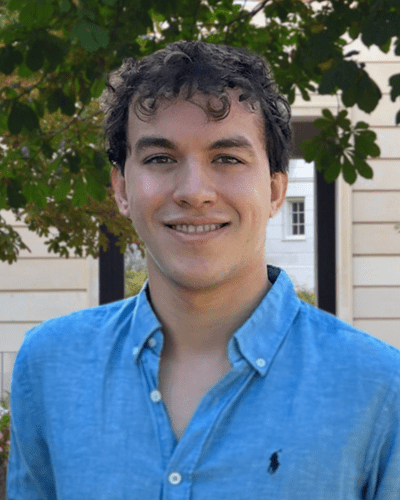
David Vijatovic
SHSC Chair (ANA)David Vijatovic is a PhD student, part of the Sweeney Group at the Institute of Science and Technology Austria (ISTA), Klosterneuburg, Austria.
David Vijatovic
SHSC Chair (ANA)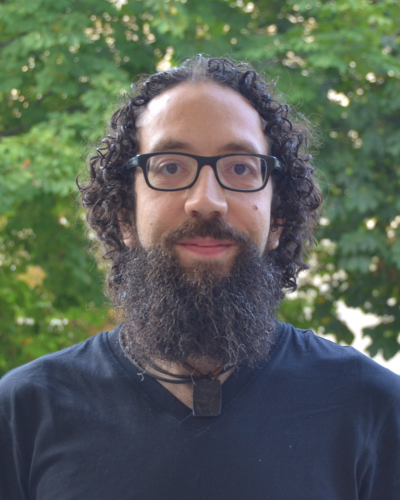
Thomas Karner
SHSC memberThomas Karner is a PhD student in the Wagner Lab, at the Faculty of Psychology, University of Vienna, Austria.
Thomas Karner
SHSC member
Greta Crudeli
SHSC memberGreta Crudeli is a PhD student in the Melzer lab, at Center for Brain Research, Medical University of Vienna, Austria.
Greta Crudeli
SHSC member
Gloria Fuhrmann
SHSC memberGloria Fuhrmann is an MSc student in the Klausberger lab, Department of Cognitive Neurobiology, at the Center for Brain Research, Medical University of Vienna
Gloria Fuhrmann
SHSC member
Divyansh Gupta
SHSC memberDivyansh Gupta is a PhD student in the Neuroethology Group, Maximilian Jösch Lab, at the Institute of Science and Technology Austria (ISTA), Klosterneuburg, Austria.
Divyansh Gupta
SHSC member
Patricia Parzer
SHSC memberPatricia Parzer is a MSc student in the Isabelle Weinhofer lab, Department of Pathobiology of the Nervous System, at the Center for Brain Research, Medical University of Vienna.
Patricia Parzer
SHSC member
Dow Glikman
SHSC memberDow Glikman is an MSc student in the Haubensak Lab, Department for Neuronal Cell Biology, at the Center for Brain Research, Medical University of Vienna.
Dow Glikman
SHSC member
Salome Niethammer
SHSC memberSalome Niethammer is a PhD student in the Melzer lab, at the Center for Brain Research, Medical University of Vienna.
Salome Niethammer
SHSC member
Adrián Klepe
SHSC memberAdrián Klepe is a PhD student in the Winfried Neuhaus lab, at the AIT Austrian Institute of Technology, Vienna, Austria.
Adrián Klepe
SHSC member
Heloisa Chiossi
SHSC memberHeloisa Chiossi is a PhD student in the Csicsvari lab, at the Institute of Science and Technology Austria (ISTA), Klosterneuburg, Austria.
Heloisa Chiossi
SHSC member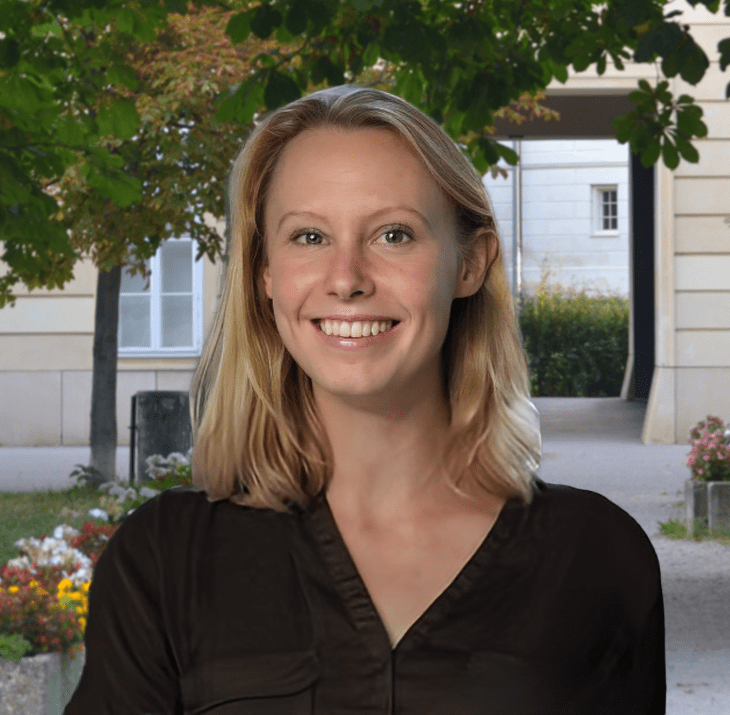
Stephanie J. Eder
SHSC memberStephanie J. Eder is a PhD student in the Zimmer Lab at the University of Vienna.
Stephanie J. Eder
SHSC member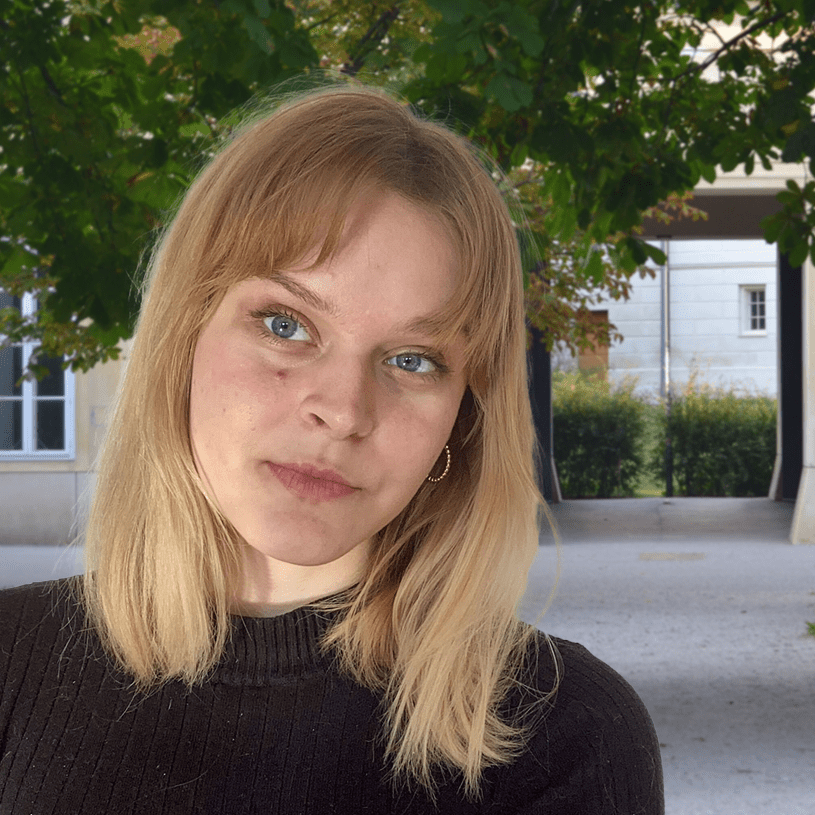
Boglárka Tóth
SHSC memberBoglárka Tóth is a graduate student in the Laboratory of Thalamus Research, László Acsády Lab, at the Institute of Experimental Medicine, Hungarian Research Network, Budapest, Hungary.
Boglárka Tóth
SHSC member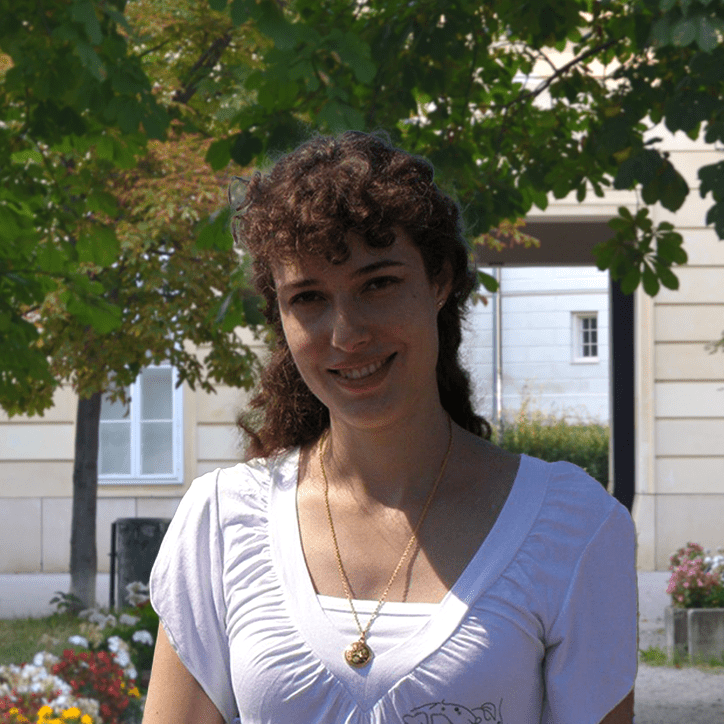
Anna Padányi
SHSC memberAnna Padányi is a PhD student in the Grastyán E. Translational Neuroscience Research Group (led by Dr. István Hernádi) at the University of Pécs, Hungary.